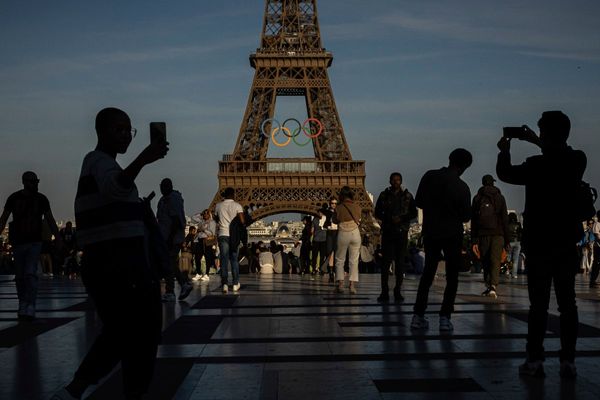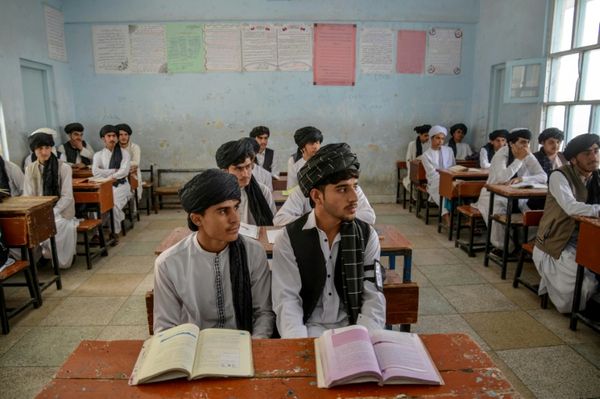
Australia’s system of indefinite immigration detention is set to be challenged in a bid to overturn a 20-year-old high court precedent keeping hundreds of people who can’t be deported in detention.
Lawyers for NZYQ, the pseudonym of a stateless Rohingya refugee, have told the high court their client, aged 28 to 30, “may potentially be detained for life” unless it rules that people can only be held temporarily to facilitate their deportation.
The case is due to be heard in November, in what will be the first full high court reconsideration of the controversial 2004 decision in the case of Al-Kateb, in which a majority of the justices accepted that indefinite detention is authorised even if it was not possible to deport the person.
The Human Rights Law Centre and UNSW’s Kaldor Centre for International Refugee Law have applied to make submissions in the case, warning that the Al-Kateb decision has resulted in the average time spent in detention steadily increasing.
Of those currently detained, the average time spent in immigration detention is 709 days. There are 127 people who have been in detention for more than five years – including many who are stateless or owed protection by Australia, meaning that they cannot be deported.
According to court documents, NZYQ arrived in Australia by boat in September 2012, but had his bridging visa cancelled in 2015 when he pleaded guilty to sexual intercourse with a 10-year old minor.
After serving a non-parole period of three years and four months, NZYQ was released from prison and sent into immigration detention in May 2018. He was denied a safe haven enterprise visa because he was considered a danger to the Australian community, the respondents submissions reveal.
In February 2023, the immigration minister, Andrew Giles, refused to use personal powers to allow NZYQ to reapply for a visa. The commonwealth agrees that there is “no real prospect or likelihood” of NZYQ being deported in the foreseeable future.
In submissions, NZYQ’s lawyers argue the court must choose between an interpretation of the law that detention must cease if removal is not practically possibly or accept that “if it never becomes practicable to remove the detainee, the detainee must spend the remainder of his or her life in detention”.
They submitted that the four judges in the majority in Al-Kateb “failed to recognise” that the alternative of temporary detention was “reasonably open”.
That interpretation of the law is preferable, they argued, because curtailing fundamental rights requires “express words” or must be “necessary” by implication.
They submitted the executive government has power to “exclude, admit and deport an alien” but if there is “no practical possibility” of doing so, then detention is not authorised for those purposes.
The Migration Act did not “authorise the plaintiff’s detention, based only on ‘the hope of the minister, triumphing over present experience, that at some future time some other state may be prepared to receive’ him”, the lawyers said, quoting Justice William Gummow’s dissenting decision in Al-Kateb.
In the respondents’ submissions, the commonwealth said deporting NZYQ is “not impossible” because the government is “continuing to take steps directed to the plaintiff’s removal by seeking to identify countries to which he could be removed”.
The commonwealth also cited the possibilities that “circumstances may change in Myanmar” or the ministers may change their mind and allow him a visa.
The commonwealth submitted that Al-Kateb should not be overturned, arguing NZYQ’s case repeats arguments in that case “apparently in the hope that a differently constituted court will decide them differently”.
The majority “did not fail to properly apply” the principles identified in NZYQ’s case, the submissions said.
Sanmati Verma, the acting legal director at the HRLC, said it should not be possible for governments to detain people for “as long as they choose, based on assurances about intentions and hypothetical future events”.
“Once we accept that migrants and people seeking asylum can be locked up forever, then we allow ourselves to tolerate any amount of cruelty and punishment directed towards them,” she said. “It is time for that to end.”
Jane McAdam, director of the Kaldor Centre, said “as a matter of international law, indefinite detention is arbitrary and unlawful”.
“Detention should only be used where it is absolutely necessary in the individual case, and there is no reasonable alternative available.”
In December, lawyers for an Egyptian man, Tony Sami, sought to overturn Al-Kateb but were thwarted by the Australian Border Force “unwillingly” removing him after he spent a decade in detention.
In September, Guardian Australia revealed that the home affairs department under the then minister, Peter Dutton, was warned by an independent review in 2020 that immigration detention was “failing” to meet key objectives, including to resolve people’s immigration status as quickly as possible.







